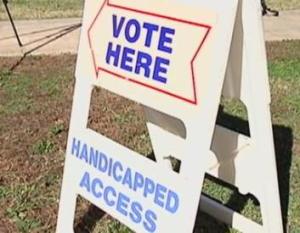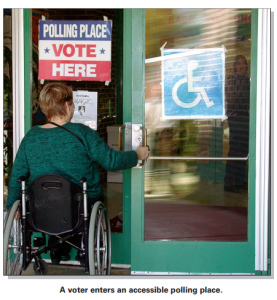U.S. Attorney Joyce White Vance has announced a comprehensive settlement agreement under the Americans with Disabilities Act with the University of Alabama at Birmingham to ensure equal access for individuals with disabilities to the university’s academic and general facilities. The agreement also established an innovative process for ADA complaints to be investigated or reviewed.
The agreement resolves a complaint filed by a UAB student who alleged that various buildings and parking lots on campus were inaccessible to individuals with mobility impairments, in violation of the ADA.
Title II of the ADA requires that public entities ensure that no qualified individual with a disability be excluded from participation in or be denied the benefits of services, programs or activities of a public entity, or be subjected to discrimination on the basis of that disability. In addition, Title II of the ADA requires, among other things, that no qualified individual with a disability shall, because a public entity’s facilities are inaccessible to or unusable by individuals with disabilities, be excluded from participation in, or be denied the benefits of the services, programs or activities of a public entity, or be subjected to discrimination by any public entity.
UAB worked jointly with the U.S. Department of Justice and the U.S. Attorney’s Office to address the complaint. Through the collaboration, the parties developed a pilot program designed to address alleged violations of the ADA at institutions of higher learning. As part of the pilot, UAB agreed to conduct architectural reviews of several academic and general facilities. The Justice Department provided support and trained UAB personnel to properly survey the university’s property for ADA compliance. Once UAB completes its architectural surveys, it will submit reports to the Justice Department for review.
“UAB should be commended for its quick response to the complaint of potential ADA violations and its willingness to work collaboratively with my office and DOJ to promptly address the problem and protect the rights of people with disabilities,” Vance said. “We welcome the use of this collaborative model, which avoids litigation costs and encourages efficient remedies for the people in our community.”
As a public entity, UAB is required to ensure that its facilities are readily accessible to individuals with disabilities. Public entities must also construct or alter any buildings or facilities in such a manner that those structures meet the requirements of Title II of the ADA.
Accessology assists Universities, school districts and other Title II entities in the development of comprehensive ADA transition plans. The national consulting company on issues of accessibility located in McKinney, Texas, has been warning private as well as public agencies that after 25 years since the passage of the ADA, there is a risk that noncompliance with the federal civil rights law will result in the removal of federal funds. Accessology’s experts are uniquely qualified to identify compliance gaps and reduce the risk of a private litigation or a Department of Justice (DOJ) review. Contact Accessology at www.accessology.com.




